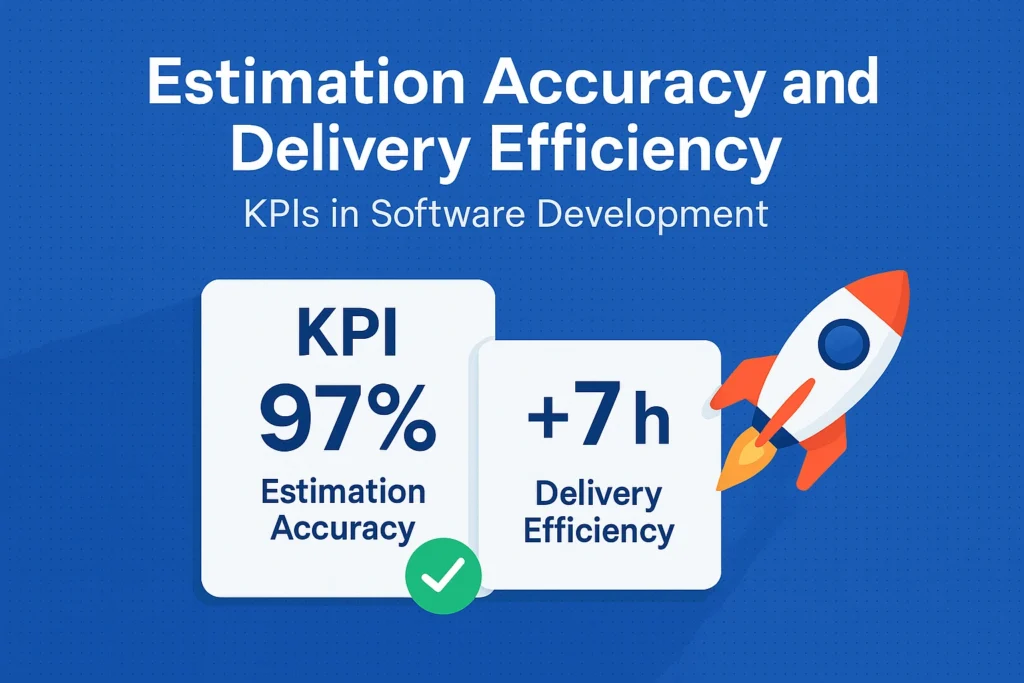What is developer outsourcing and how can it benefit your company? In an increasingly digital and competitive world, outsourcing talent has become a key strategy for companies looking for quick access to specialized skills, team flexibility and cost-effectiveness.
Outsourcing developers allows companies to bring in technology experts without the constraints of traditional hiring, making it essential for scaling projects, driving innovation and keeping up with market demands. In this guide, we’ll cover the essentials of developer outsourcing, from its benefits to best practices for implementing this strategy effectively.
What is Developer Outsourcing?
Developer outsourcing means hiring external developers or teams, typically through agencies or freelance networks, to handle specific tasks or entire projects. Instead of building an in-house team, businesses outsource their development needs to skilled professionals. This approach offers companies access to specialized expertise, helps manage costs, and supports agility in a fast-changing tech landscape.
Types of Developer Outsourcing
Outsourcing developers typically follows one of three main models:
1. Onshore Outsourcing
Working with developers in the same country eases communication and minimizes cultural or language barriers.
2. Nearshore Outsourcing
Partnering with developers in nearby countries, typically within a similar time zone. This model combines ease of collaboration with some cost savings.
3. Offshore Outsourcing
Hiring developers from countries farther away, often in different time zones, usually offers the most cost-effective option. In regions like Asia, Eastern Europe, and Latin America, skilled talent tends to be more affordable, providing significant savings for businesses looking to optimize their budgets.
Key Benefits of Developer Outsourcing
- Cost Efficiency: Outsourcing reduces overhead costs by allowing companies to avoid full-time salaries, benefits, and infrastructure expenses.
- Access to Global Talent: It provides access to a wider pool of highly specialized developers who may not be available locally.
- Focus on Core Business: Companies can concentrate on their core functions while experts handle the technical development work.
- Scalability and Flexibility: Outsourcing allows businesses to scale their teams up or down depending on project demands, making it easier to handle fluctuating workloads.
Advantages of software developer outsourcing
Outsourcing software development offers several advantages that can significantly benefit companies, whether they’re startups or large enterprises. Here are the key advantages:
1. Cost Savings
- Lower Labor Costs: Hiring developers in regions with lower living costs often results in significant savings compared to local talent.
- Reduced Overhead: Companies avoid expenses related to office space, equipment, benefits, and training for in-house staff.
2. Access to a Global Talent Pool
- Specialized Expertise: Outsourcing opens doors to skilled professionals with expertise in specific technologies, tools, and industry knowledge.
- Broader Skill Set: Companies can hire specialized developers for specific project needs without needing to retain them long-term.

3. Faster Time-to-Market
- Flexible Scaling: Outsourcing allows for quick team expansion to meet deadlines, making it easier to deliver products faster.
- 24/7 Productivity: Offshore teams in different time zones can keep development moving around the clock.
4. Focus on Core Business Activities
- Delegate Non-Core Tasks: Outsourcing development lets in-house teams focus on core business functions like strategy, marketing, and client relations.
- Reduced Management Burden: By outsourcing, companies can rely on the external team’s project management and reduce the strain on internal resources.
5. Scalability and Flexibility
- Adaptable Resources: Outsourcing partners offer the flexibility to scale development teams up or down as project demands change, without long-term commitments.
- Trial Periods for New Ideas: Outsourcing provides a low-risk way to test new ideas or products before investing heavily in in-house resources.
6. Enhanced Innovation and Quality
- Exposure to Industry Best Practices: Many outsourcing partners have extensive experience and bring proven methodologies, tools, and innovation to projects.
- Focus on Quality: High-quality service is a priority for reputable outsourcing firms, helping ensure that the final product meets or exceeds standards.
7. Reduced Risk
- Shared Responsibility: Outsourcing contracts often specify responsibility-sharing and quality guarantees, reducing the risk of in-house errors.
- Improved Risk Management: Many outsourcing providers have expertise in managing security, compliance, and other risks, which can benefit the project’s overall success.
8. Access to Advanced Technology
- State-of-the-Art Tools: Outsourcing firms often have access to and knowledge of the latest technology, allowing companies to benefit from these advancements without high costs.
5 Essential Factors to Consider Before Outsourcing Software Development
1. Define Project Scope and Objectives Clearly
- Why It Matters: A well-defined project scope sets clear expectations and minimizes misunderstandings with the outsourcing partner.
- How to Approach It: Outline the project’s requirements, deliverables, timelines, and goals. Consider creating a detailed project brief that includes user stories, design requirements, and any specific technologies needed.
- Tip: Establish key performance indicators (KPIs) to measure progress and success, making it easier to hold the outsourcing partner accountable.
2. Evaluate the Outsourcing Partner’s Expertise and Experience
- Why It Matters: The success of your project relies on the outsourcing partner’s skills, experience, and industry knowledge.
- How to Approach It: Research potential partners thoroughly. Look at their portfolio, case studies, and client testimonials. It’s also helpful to request sample code or conduct technical assessments to evaluate their capabilities.
- Tip: Seek a partner with specific experience in your industry or with the technologies you need. A vendor familiar with similar projects may provide valuable insights and suggest improvements.
3. Communication and Collaboration Capabilities
- Why It Matters: Effective communication is crucial, especially when working across different time zones and cultures.
- How to Approach It: Ensure the outsourcing partner has clear communication protocols and dedicated points of contact. Agree on communication channels (such as Slack, Teams, or Zoom) and set up regular check-ins to track progress.
- Tip: Ask about the partner’s language proficiency and cultural alignment. If possible, choose a partner in a time zone close to yours, or with overlapping hours, to facilitate real-time collaboration.
4. Consider the Cost Structure and Budget Constraints
- Why It Matters: While outsourcing can reduce costs, unexpected expenses can arise if budgets and billing structures aren’t clear from the start.
- How to Approach It: Understand the partner’s pricing model (hourly rate, fixed project fee, etc.) and any additional costs, like licensing fees or extra support hours. Agree on the budget in advance and be cautious of prices that seem too low, as they can lead to quality compromises.
- Tip: Use a contract that includes milestones and payment schedules tied to project phases. This ensures that payments align with the delivery of specific project components and helps manage cash flow.
5. Data Security and Intellectual Property Protection
- Why It Matters: Working with an external partner exposes your project to data and IP risks, especially if they handle sensitive information.
- How to Approach It: Discuss the outsourcing partner’s security protocols, data protection measures, and compliance with relevant regulations (e.g., GDPR, HIPAA). Implement NDAs (Non-Disclosure Agreements) and ensure the contract includes IP ownership clauses that assign rights to your company upon project completion.
- Tip: Opt for a partner with certifications like ISO/IEC 27001, which demonstrates a commitment to information security. Conduct regular security audits to ensure ongoing compliance.
Conclusion
In summary, developer outsourcing is a powerful strategy that enables companies to access specialized expertise, boost flexibility, and control costs, all while staying focused on core business goals.
By bringing in skilled developers, organizations can speed up project timelines and reach their development targets more efficiently. However, the success of outsourcing depends on selecting the right partners, establishing clear communication channels, and defining project scopes effectively.
When managed thoughtfully, this approach not only strengthens operational capacity and drives innovation but also positions businesses to excel in a competitive environment. To explore how outsourcing can work for your company, consider scheduling a call with a qualified provider to discuss your needs and objectives.






